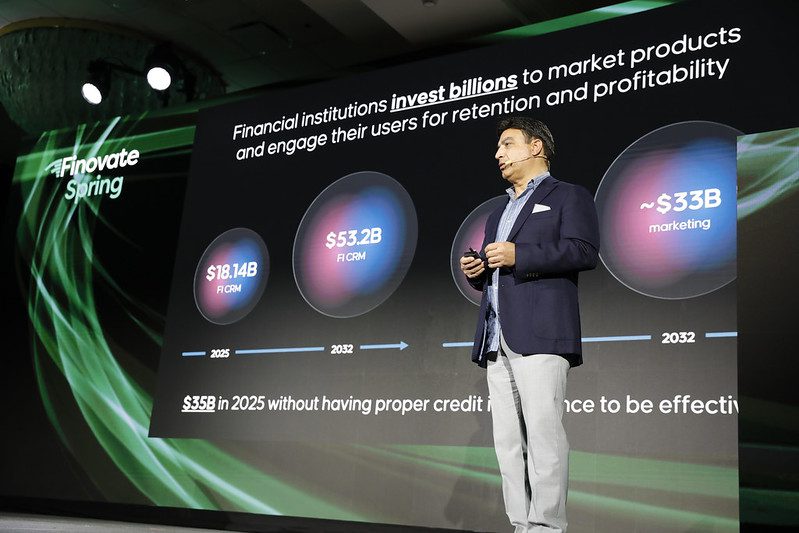
This week’s edition of Finovate Global showcases fintech news from companies operating in Germany.
Aufinity raised $26 million in Series C funding
A specialist in the field of payment management for the automotive market, Aufinity Group announced this week that it has successfully completed a $26 million Series C round of funding. The round was led by BlackFin Capital Partners, and featured re-investments from current investors PayPal Ventures and Seaya Ventures. The German fintech will use the funds to power its European expansion and to help forge partnerships with Original Equipment Manufacturers (OEMs).
“With this round, we are focusing on accelerating our growth across Europe even further, “Aufinity Group Co-Founder and CEO Lasse Diener said. “Through new strategic partnerships with leading OEMs and by continuing our focus on dealerships, we are preparing to redefine the industry standard for the whole of Europe.”

Aufinity Group’s eponymous platform offers car dealers and OEMs a digital payment management solution that is optimized and white-label-capable. The technology serves both vehicle sales and after-sales, and features optimized payment processes to provide faster incoming payments, greater liquidity and efficiency, and a superior customer experience. Founded in 2018, Aufinity Group is headquartered in Cologne; the company pointed to growing demand for its technology and a successful expansion to Italy and Spain in 2024 in explaining its goal to pursue more international markets in 2025.
“Our core business in Germany is already solidly positioned,” Diener added. “However, the high level of interest from the international market has prompted us to push ahead with our expansion into more countries earlier than planned, which is a great market confirmation for our business and platform.”
YouLend and eBay Germany team up to help finance marketplace sellers
Embedded financing platform YouLend has partnered with eBay Germany to provide integrated financing to sellers on the platform. Part of the eBay Seller Capital Program, the partnership will enable German eBay sellers to access pre-approved financing of up to €2 million ($2.26 million). Financing is based on the sellers’ performance data, and does not require an additional, separate application process.
“Sellers benefit from a chain reaction: quicker inventory restocks, improved product listing, or targeted marketing leading to greater visibility, higher sales, and more growth opportunities—all of which can be financed through YouLend,” Leonard Strigel, YouLend General Manager Germany, said. “This cycle of funding, growth, and reinvestment helps increase seller revenues.”
The partnership will give sellers personalized, pre-approved financing offers, informing them of exactly how much capital they are eligible for before they apply for funding. Direct integration of YouLend’s technology into the eBay platform supports a seamless application process that is “simple, digital, and reliable,” Strigel added.
Founded in 2016, YouLend launched in the UK and Ireland in 2018, entered Europe in 2022, and went live in the US the following year. In 2024, YouLend announced a £4 billion financing investment from J.P. Morgan.
eBay has maintained a presence in Germany since the company’s 1999 takeover of auction platform Alando. eBay Germany currently has more than 150 million visits per month.
German expense management platform Circula secured €15 million
An extended Series A round has given Berlin-based, AI-powered expense management platform Circula €15 million ($17 million) to help bring autonomous finance workflows to medium-sized business in Germany and beyond. The investment will enable the firm to boost its AI capabilities and offer additional automation features for finance teams.
Participating in the funding were existing investors Alstin Capital, Capnamic Ventures, Peak Capital, Wenvest Capital, and Storm Ventures. CIBC Innovation Banking also participated in the investment.
“We have a clear goal: to become Germany’s AI-based champion in expense and spend management for small and medium-sized businesses,” Circula CEO Nikolai Skatchkov said. “With hundreds of millions of euros in transaction volume, hundreds of thousands of active users, and the trust of countless tax advisory firms, we are in an ideal position to realize our vision of a seamless workday for finance teams in the coming years.”

Circula, founded in 2017, counts firms such as Aston Martin, DATEV, and Securitas among its customers. The company’s modular SaaS platform streamlines business expense management with features including AI-powered receipt capture, automated tax-compliant data extraction, and real-time booking verification. More than 150,000 workers throughout Europe rely on Circula’s technology to manage their business travel expenses, credit card transactions, employee benefits, and more.
Circula’s announcement comes at a time when less than 9% of medium-sized businesses in Germany report fully automating their expense workflows, according to research from ERP firm Diamant. In contrast, Circula captures 70%+ of employee expenses when they happen, and enables companies to reduce manual work by 80% and reduce monthly closing cycles.
“Circula is transforming traditional paperwork into smart, AI-powered processes—setting new standards in digital expense management,” CIBC Innovation Banking Director Charlotte Goggin said. “We are excited to support this growth.”
Here is our look at fintech innovation around the world.
Asia-Pacific
- CIMB Bank, Malaysia’s second largest financial services provider, teamed up with payments technology innovator ACI Worldwide.
- Singapore-based payments platform Airwallex raised $300 million in Series F funding at a valuation of $6.2 billion.
- Philippine-based universal bank EastWest Bank turned to Temenos to modernize its core.
Sub-Saharan Africa
- International remittance company Panda Remit announced a strategic partnership with Uruguay-based cross-border payments platform dLocal to expand into Africa.
- Fayda wallet went live in Ethiopia, advancing adoption of biometric-based digital ID and enhancing financial access.
- Payments solutions company Spayz.io entered a trio of new African markets: South Africa, Egypt, and Cameroon.
Central and Eastern Europe
- Embedded financing platform YouLend entered into a strategic partnership with eBay Germany.
- Raiffeisen Bank in Bosnia-Herzegovina went live with Temenos for retail banking operations.
- German fintech Aufinity raised $26 million in Series C funding.
Middle East and Northern Africa
- Payment infrastructure company areeba and digital banking solutions provider Foo forge strategic partnership to enhance digital payments in the Middle East.
- Zawya looked at how the Qi card is bringing greater digitization to Iraq’s financial services industry.
- Egyptian-based digital lending marketplace Qardy agreed to be acquired by Catalyst Partners Middle East (CPME) via SPAC.
Central and Southern Asia
- Indian business banking company PaySprint secured $1.2 million of its $3 million Series A funding round.
- The State Bank of Pakistan (SBP) launched its regulatory sandbox to boost innovation in the fintech sandbox.
- Bajaj Finance, India’s largest non-bank lender completed its core lending transformation courtesy of a partnership with Pennant Technologies.
Latin America and the Caribbean
- Worldpay initiated domestic acquiring capabilities in Colombia.
- Binance Pay integrated with Brazil’s Pix payments system.
- Payments solutions provider for enterprises and banks, Juspay, opened a new hub in Brazil.











